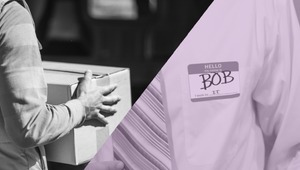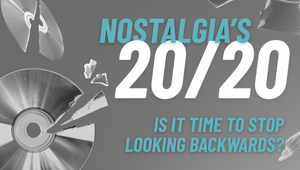
How Certainty Is Controlling Our Forward Movement

I am certain that if I work on a project by myself, it’ll be done right the first time. I am certain that to achieve career success, I must follow a specific path and plan and control the work, team and dialogue. I am certain that if I don’t stand up for myself, no one will, and if I don’t fight for myself, no one will, and if the world would just go back to “normal,” I’d be more successful. I am certain of many many things.
But here’s the kicker. You can analyse a situation, use statistics and apply projections. You can compile all the data to prove that you are certain about that next step, that it’s going to work. You can control as many variables as you possibly can, but are you truly 100% certain of success?
What happens when that certainty fails you? Disappointment, dismay, confusion and pain, and the most disappointing … loss of control.
So, why do we even attempt certainty? Because uncertainty is way scarier. Check out this uncertainty synonym/antonym list from Merriam-Webster Dictionary. I definitely want to be on the antonym side of thinking.
Distrust > Assurance
Doubt > Confidence
Skepticism > Conviction
Suspicion > Trust
However, let’s flip our thinking and release our adherence to standard definitions so that we can view uncertainty as a positive.
In Mel Schwartz’s book, 'The Possibility Principle,' he digs into the idea of how operating from a place of certainty limits us … the way we think, create, operate, live and love.
How We Limit Ourselves With Certainty
1. Finite thinking keeps us stuck in oversimplification and rigidity.
2. Feeling the need to be right, in order to protect our self-identity, can backfire.
3. Determining who we are based on past experiences or core beliefs, can limit our future.
VMLY&R managing director Heather Physioc recalls working with a client and how the oversimplification of their business challenge missed the greater emotional and human-centered challenge their consumers were facing.
“I tell this client story a lot about the fear and hesitancy questions around vaccines. It wasn't surprising that there was fear, doubt and confusion, but it was surprising that a full 1/3 of search volume for the client's and nasal flu vaccines implied some kind of concern, whether it was about ingredients, safety, impact, side effects or otherwise. That told us we had an emotional and fear challenge to solve before we could persuade parents that this was a great flu vaccine alternative for their kids,” says Heather.
How We Can Grow With Uncertainty
1. Approach your questioning from a place of wonder not insecurity, and let the creative thinking become tangible.
- Katie Cunningham, connections supervisor at VMLY&R, took a data-driven request from her client, questioned their thinking and creatively researched deeper into the intent behind consumer interaction.
- “My client thought their consumers searched by application of the tires, such as severe service use, long haul trips, regional deliveries. They asked us to create content for those pages to improve them. However, when I dug deeper, the keyword research showed people searched by position of the tire on the truck itself way more often. We showed the data to get buy in and built new pages. This one-time page build has driven 6,000 new sessions in the past year that would have missed otherwise. These pages now account for 15% of traffic to that section of the site,” says Katie.
2. When you free yourself from defending the need to be right, you open yourself up to vulnerability and possibilities.
- “Ask yourself in what ways your need to be right might block your ability to connect to and validate others and to open yourself to new learning,” says Dr. Schwartz.
3. Embracing uncertainty encourages us to participate in life, take charge of our thinking and invite – not limit.
- “Every time we set an aggressive goal – like reaching record-breaking revenue from my team while riding out the uncertainty of a global pandemic — there's a risk we're going to fall short. But I think we all would rather set an aggressive goal and miss it, yet still go further than if we had set a weaker goal and hit it,” Heather says.
When we live in our own thinking and encourage the finite idea of certainty, the tragedy that happens is that we shut ourselves off from any other beautiful paths that may be even more favourable. Don’t limit yourself with certainty. Instead, redefine uncertainty.
This is how I choose to redefine uncertainty.
Possibility
Wonder
Openness
Living
And as we navigate the very present challenges we face with Covid-19, let’s allow ourselves to be okay with releasing control over that challenge and living in a positive definition. If you could encourage yourself to remove the negative connotation from uncertainty and create your own synonyms, what would those be? And most importantly, what steps can you take here and now to open yourself up to possibility, wonder and living life to the fullest?















